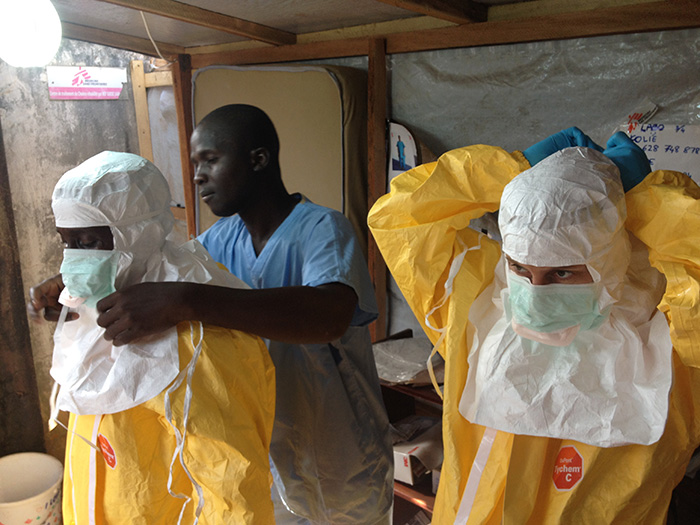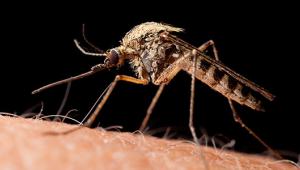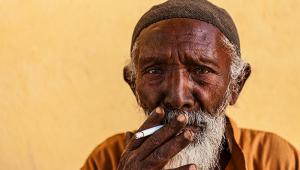ebola-team-c-european-commission-dg-echo.jpg

A medical team during the Ebola outbreak. Credit: European Commission
WHO’s emergency committee, convened by its director general Margaret Chan, announced yesterday that it no longer considers the disease, which killed over 11,000 people at its height, an “extraordinary event”, that the risk of international spread is now low and that countries now have the capacity to respond to new emergences.
The decision means the committee doesn’t see the virus as a threat to countries outside of the three worst-affected – Guinea, Sierra Leone and Liberia – any longer.
While new clusters of cases in are still expected, all three countries have now confirmed the original chains of transmission linked to the widespread outbreak have been interrupted, with Guinea achieving this milestone on 27 March 2016.
As the virus clears from the survivor population, new clusters of cases are decreasing in frequency. Of the 12 small outbreaks detected so far, the only one still ongoing is the most recent emergence in Guinea, which began earlier this month.
The committee said that it was “impressed that to date all of these clusters have been detected and responded to rapidly”, limiting further transmission. Of the 12 clusters detected to date, 11 have been effectively stopped.
WHO called for all travel and trade restrictions from Liberia, Sierra Leone and Guinea to be lifted immediately.
Ebola was declared an international public health emergency in August 2014, around eight months after the outbreak began.
WHO has been widely criticised for sounding the alarm too late, resulting in the loss of a critical time window to mobilise international resources and get the epidemic under control.
However, the emergency committee yesterday emphasised the “crucial need” for continued support from international donors to maintain and if necessary expand diagnostic laboratory and surveillance capacity, sustain vaccinations and continue relevant research.
Continued technical assistance is also required to detect and respond to any new outbreak, WHO said. Countries must remain ready to respond and intensify efforts to ensure male survivors, who can carry Ebola in their semen, are tested and their partners vaccinated.
As of March 2016, there have been just short of 30,000 cases of Ebola reported and just over 13,000 deaths. Guinea, Liberia and Sierra Leone bore the brunt of the outbreak, with over 11,000 people losing their lives in these three countries alone.













